INDECENT EXPOSURE
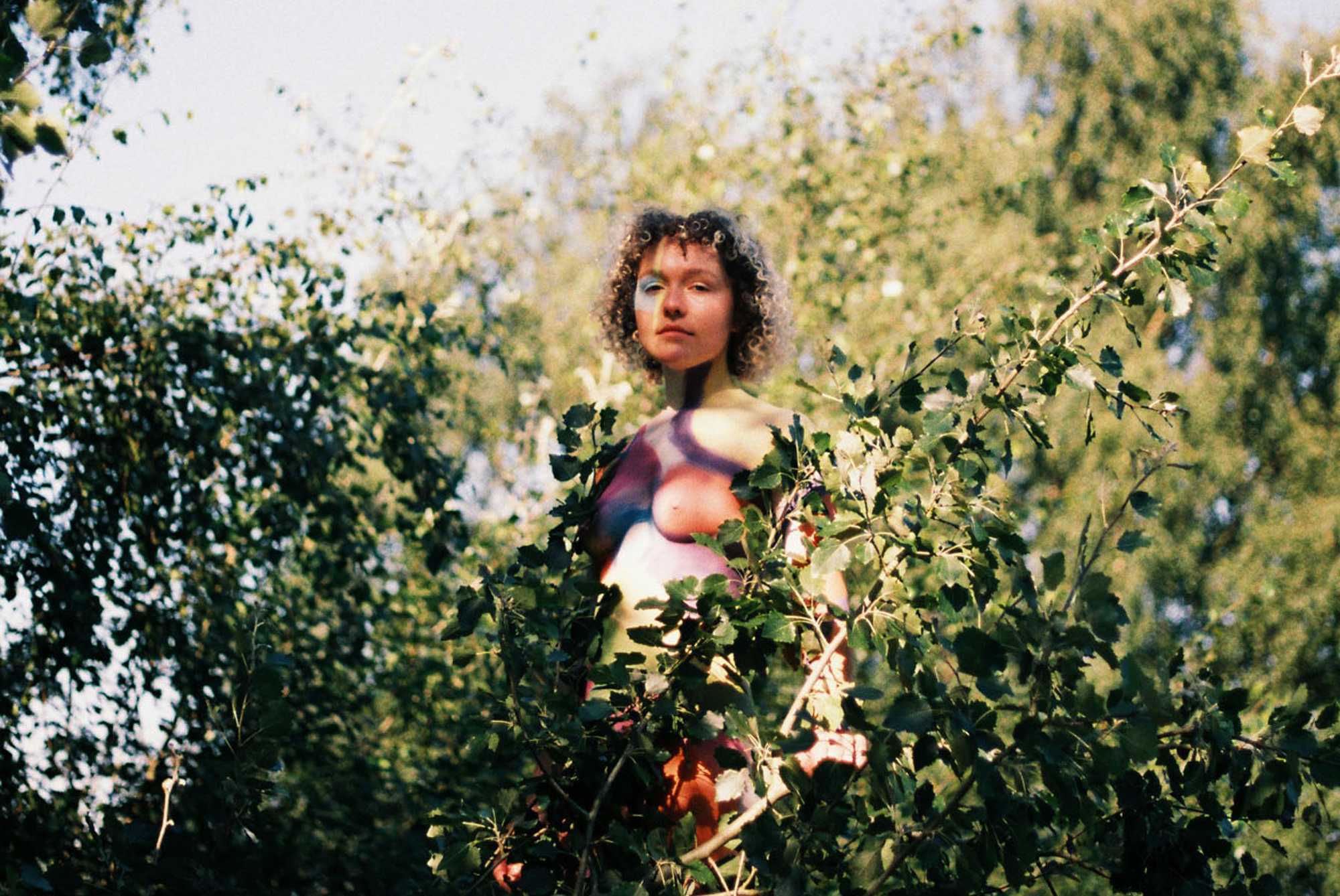
Can’t find the right top for that thing on Friday? No worries! Your birthday suit is back in fashion. At a time when minimalism and sustainability are rising to the forefront of the fashion industry, there really is no better time to start adding some nudity to your wardrobe. Fast fashion is on its way out. And so is being ashamed of our bodies.
Like many of us, I started using fashion as a way of expressing myself as a teenager. I also look back in horror at the looks I rocked
before clothing came into my awareness as a tool to be utilised deliberately and not just functionally.
Fashion is fun. And human beings are visual creatures, which makes wearing our personality in fabric a great way to make friends and connect with like-minded people.
As I grew older I became bolder and more confident in embracing my individuality through my appearance. I began questioning clothing in a more abstract sense.
Could fashion be about more than just what you wear? What about what you don’t wear? Google defines fashion as “popular aesthetic expression” – nowhere is clothing said to be mandatory.

This was something I came to think about very deeply: I wear clothes that I believe are representative of who I am as a person; clothes that ‘feel like me’. And what is more ‘me’ than, well… me? I mean, talk about a one-of-a-kind piece. Nothing you wear will ever be as unique as the body that lives underneath.
As I started toying with the idea of nudity, I began to wonder if I’d ever seen my naked body outside a bedroom or bathroom. I questioned why I would start acting like a skittish intruder in my own home if I forgot my towel when I went for a shower; why I would jump and scream in frenzied panic if my best friend entered the room while I was in a state of undress. Why? I feel comfortable in my own skin. In the wake of these incongruous realisations came the urge for a certain freedom that I couldn’t find a space for in our society. Since becoming conscious of nudity and the mental – yet very real – processes with which we surround our naked flesh, I have found that it has the power to be many things. Be it a physical and politically charged expression of liberation from societal shackles; a milestone in the journey of self-acceptance; or a deeply unifying experience to be shared with loved ones, nudity truly is whatever you make of it.
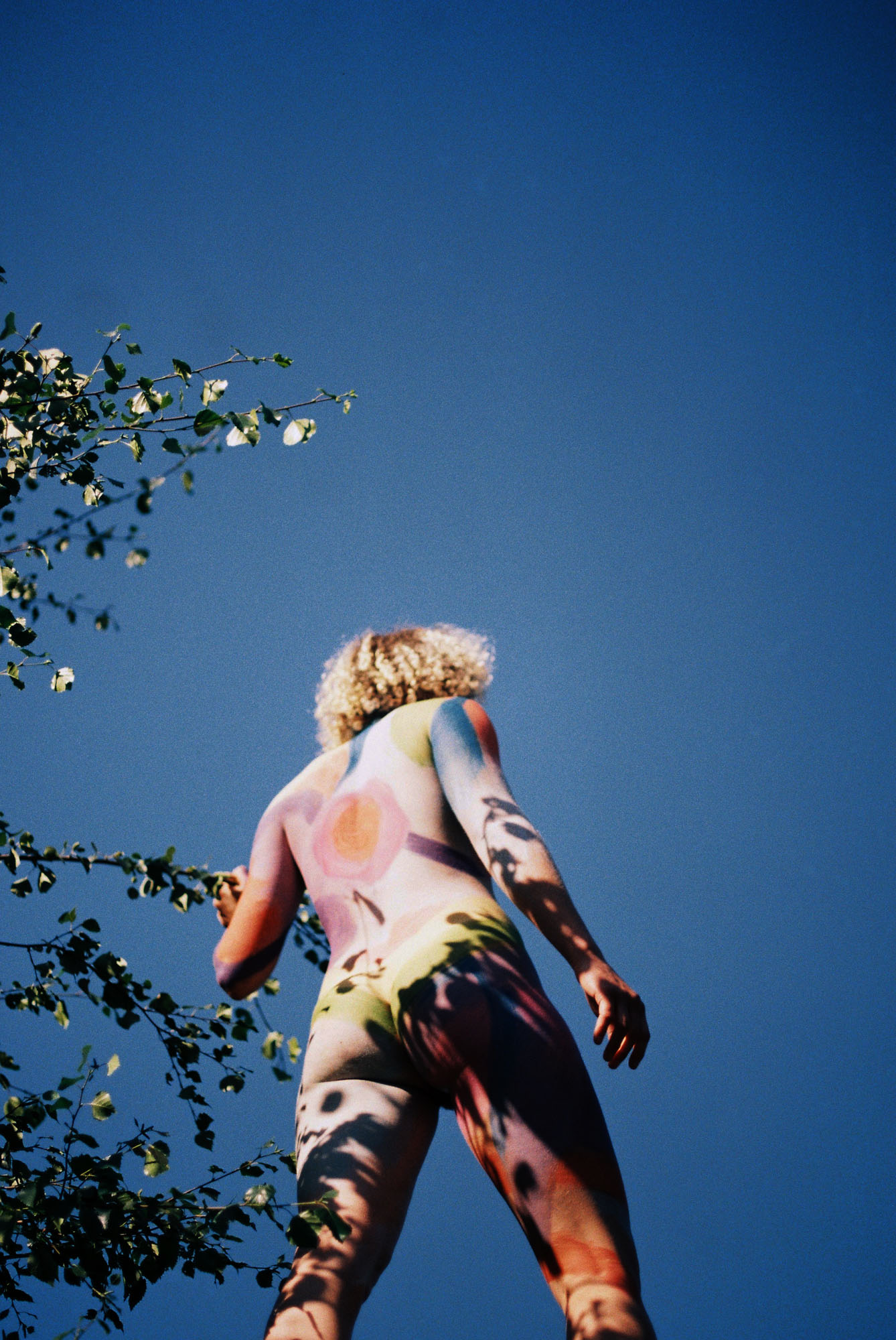
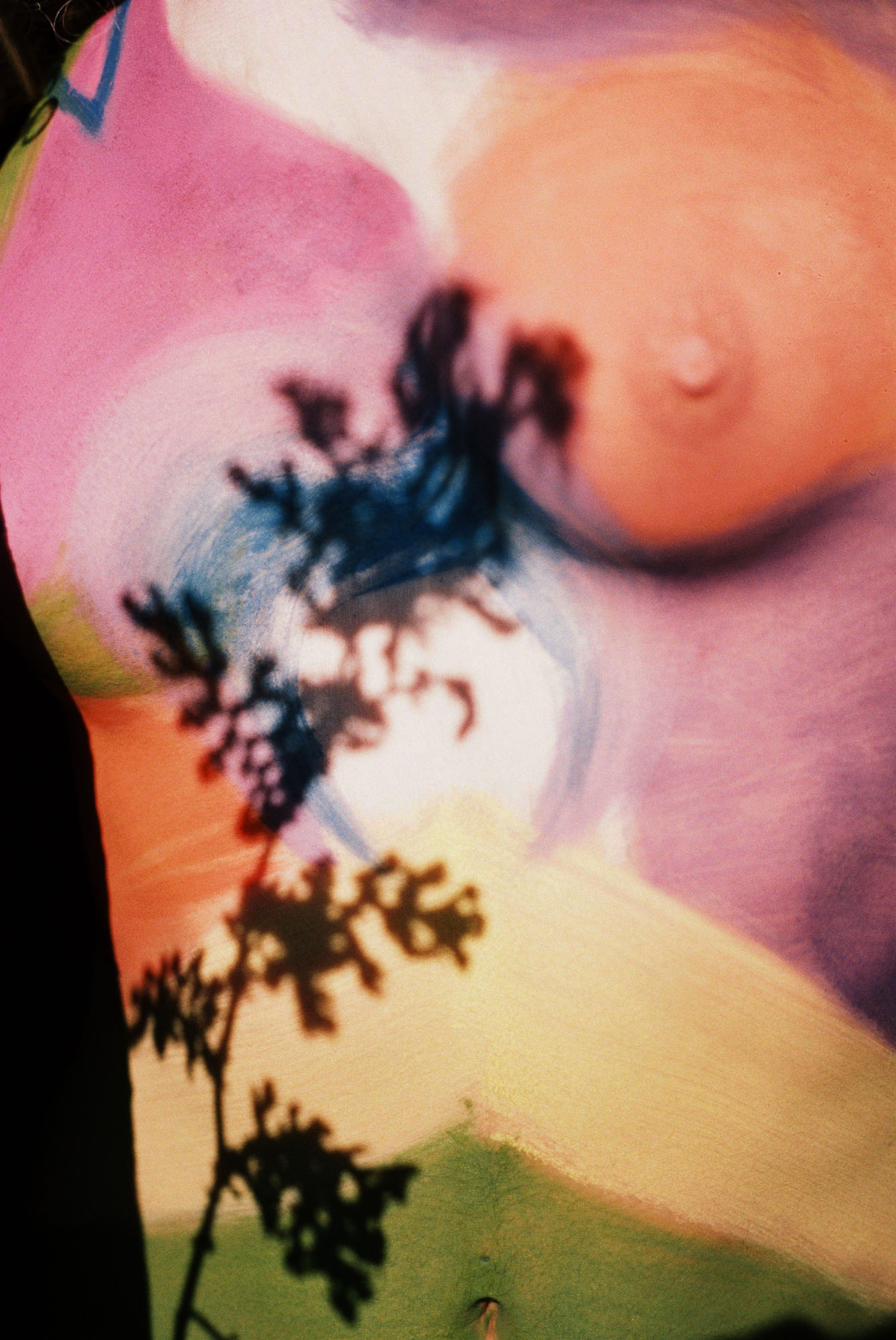
UNDRESSING SHAME
A painful feeling of humiliation or distress caused by consciousness, shortcoming, impropriety or guilt. Sound familiar? Although overwhelmingly negative, these are feelings we commonly associate with our bodies. Our shame is attributable to the fact that we are cognizant of our bodies. Self consciousness creates an acute awareness of our aesthetic qualities, despite these being largely irrelevant to physical functionality 1. Human sentience aside, religious institutions have claimed control over our bodies for centuries. Was Christianity’s doctrine of original sin an early guise of body shaming? A technique devised to subjugate the masses, constructing a reality whereby the body is deemed pathologically sinful and obscene? As the influence of organised religion fades, conventional beauty standards propagated by consumerist agendas step up to the plate, inflicting analogous wounds on our self-image.
THE IDEAL BODY – AN EXPOSÉ
Sociocultural expectations of the ‘ideal’ body are portrayed relentlessly on billboards, phone screens and in classrooms. This is despite huge variation in body standards across time and space (which are a testament to their fluid and arbitrary nature).
It’s hopefully news to no-one that mainstream representations of the body are extremely euro-centric. The fashion industry is still homogenized with white, slender, cis-gendered bodies.

Popular narratives fail to include Black, brown, trans, queer and disabled bodies of all sizes, casting them as ‘Other’, thus excluding them from the implicit acceptance that their white counterparts enjoy.
It is pivotal to address that the freedom to live, enjoy and display one’s body is a privilege. Marginalized bodies are more at risk in the hands of our violently fragile, post-colonial society that fears otherness (which is perceived as a threat to ingrained supremacy). In a hierarchical social system that perpetuates exclusion, we struggle to see anything beyond white, non-disabled hegemony. Dismantling systemic and institutional injustices that discriminate and violate bodily integrity is the responsibility of all of us, not just of those who are most at risk of experiencing them.
Portraying white features as the ideal to aspire to is a dark reality enmeshed in post-colonial ideology.
Even when under-represented intersections are given platforms in media, their bodies are often appropriated and tokenized for profit by the capitalist machine.
Whether the ends of equal representation are defined by a means of empty, ill-intentioned gestures is not a debate for this article.
But what is certain is that propagating a narrative of physicality that aligns only with a miniscule proportion of the world’s population is fictitious, misleading and deceitful.
It is a lie; a discordant projection fabricated by power-hungry institutions in a world where profit = power (and vice versa).
This mechanism of control lies within a capitalist system which in turn relies on self-limitation and devaluation of personal worth, keeping you trapped within a normalized system of perpetual consumerism 2.
The market promises respite (even an antidote!) to your unending inadequacy: makeovers, fitness plans, nip and tucks, tanning beds, skin-bleaching, fast fashion.
Meanwhile, only the innate self-worth that you’ve been socialised to deny can free you from this cycle.
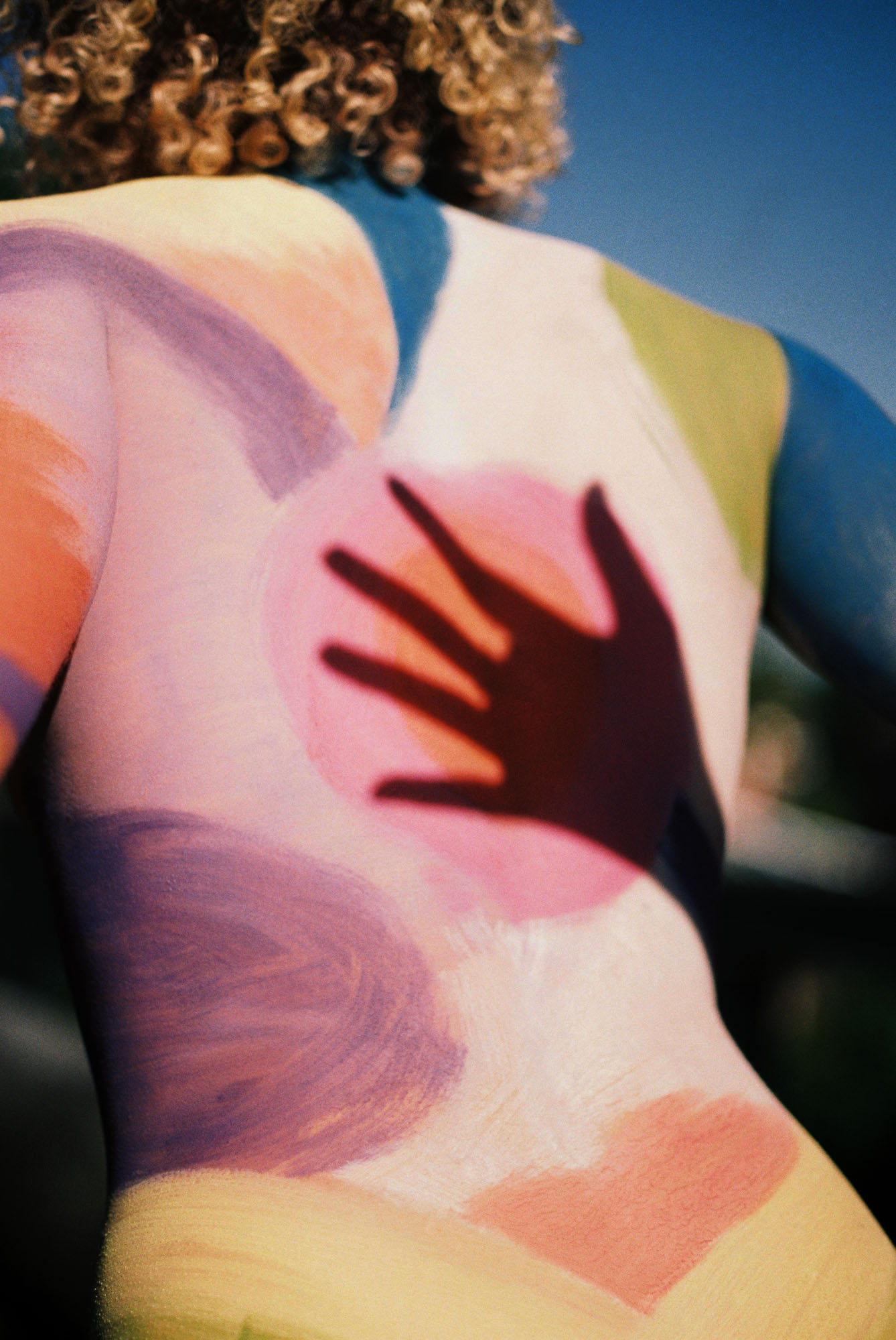
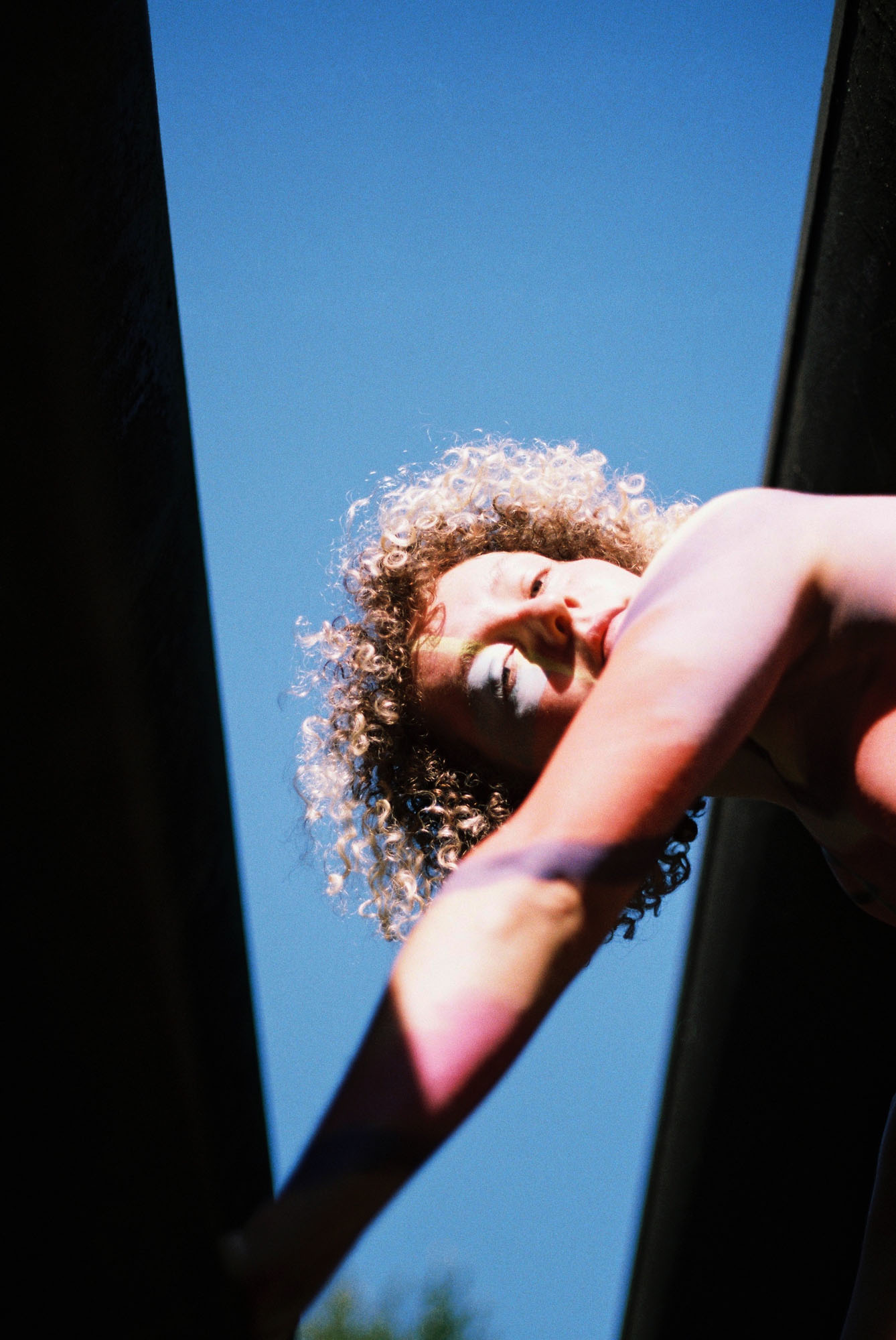
DE-SEXUALISING THE NUDE
Contrary to popular belief, the immense sexual charge of the nude is a cultural feature. It is not ‘built-in’ to nakedness. In hypersexualised societies where you are unlikely to be nude with others unless engaging in sexual activity, it becomes natural to associate nakedness solely with sex. Likewise, in communities where nudity is commonplace and observed throughout a range of non-sexual activities (such as bathing, hunting or socialising) the connection between bare skin and sex is not overwhelming, as it is in the West. Psychological studies show that naturists do not get aroused by the sight of unclad bodies. Nor are sexual activity or birth rates reported to be higher in communities where nudity is normalised 3. Which is why suggesting that nudity is an invitation for harrassment is as non-sensical as blaming victims of sexual assault for the clothes they wear. If we lived in societies where non-sexual nudity was normalised in certain environments (such as in the home or at the beach) people would learn that bodies are as equal as they are unique and consequently feel more comfortable about their own.
A BODY BOUND
The sexualisation of the nude is a feminist plight. After all, it is primarily the bodies of women4 that have been oppressed since the agricultural revolution made economic assets of our child-bearing capability.
Wars have been waged and religions have risen to (albeit unsuccessfully) stamp out the innate power of the divine feminine.
From tales of Eve’s sinful indiscreditions in the garden of Eden to sex-selective abortion, witch-burning and tampon tax, women have suffered under violent norms that restrict freedom and mobility, thus excluding us from social, political, educational, and economic life 5.
To this day, women’s bodies remain deeply embedded in political landscapes, bound by issues such as birth control, domestic violence, sexual assault and rape.
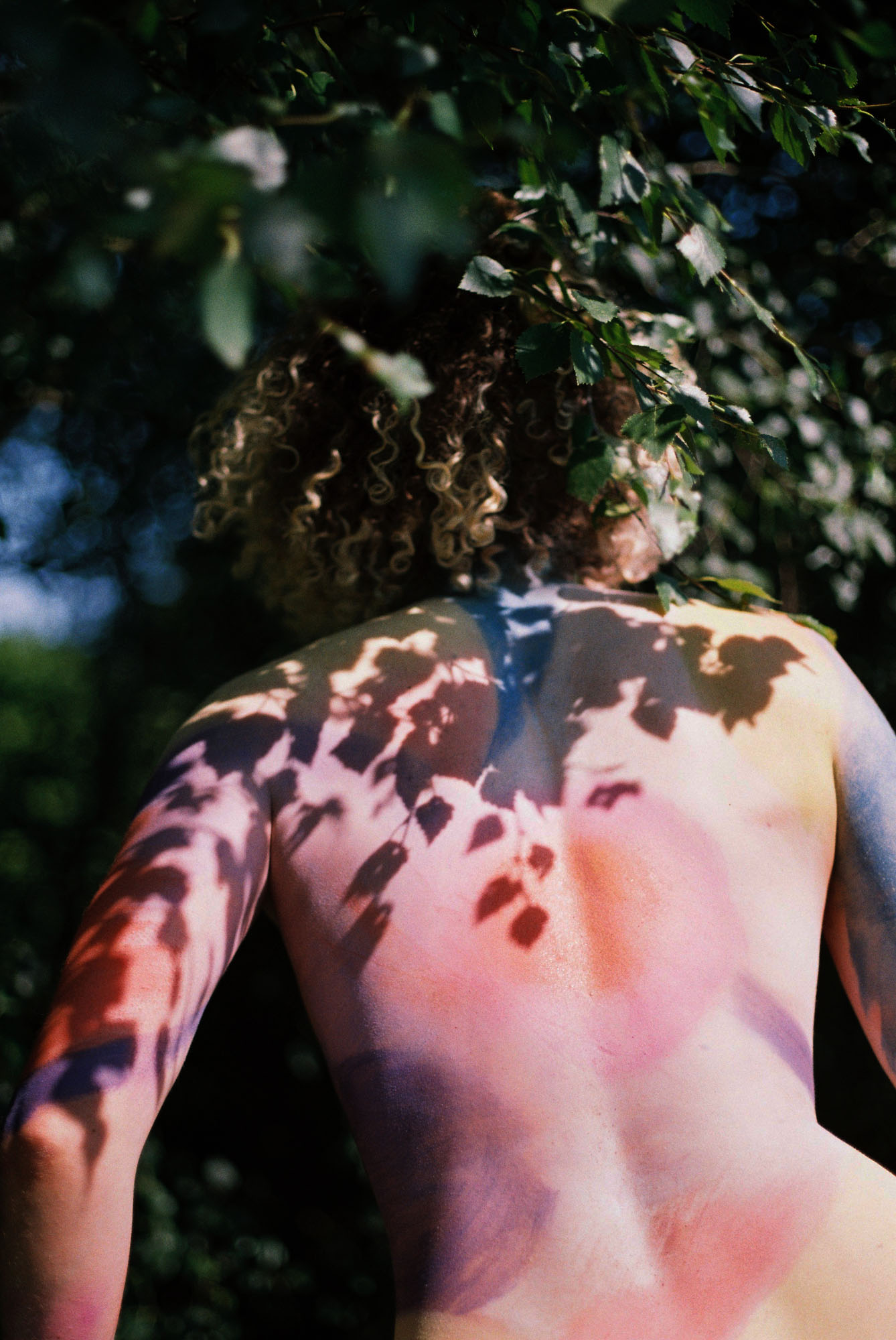
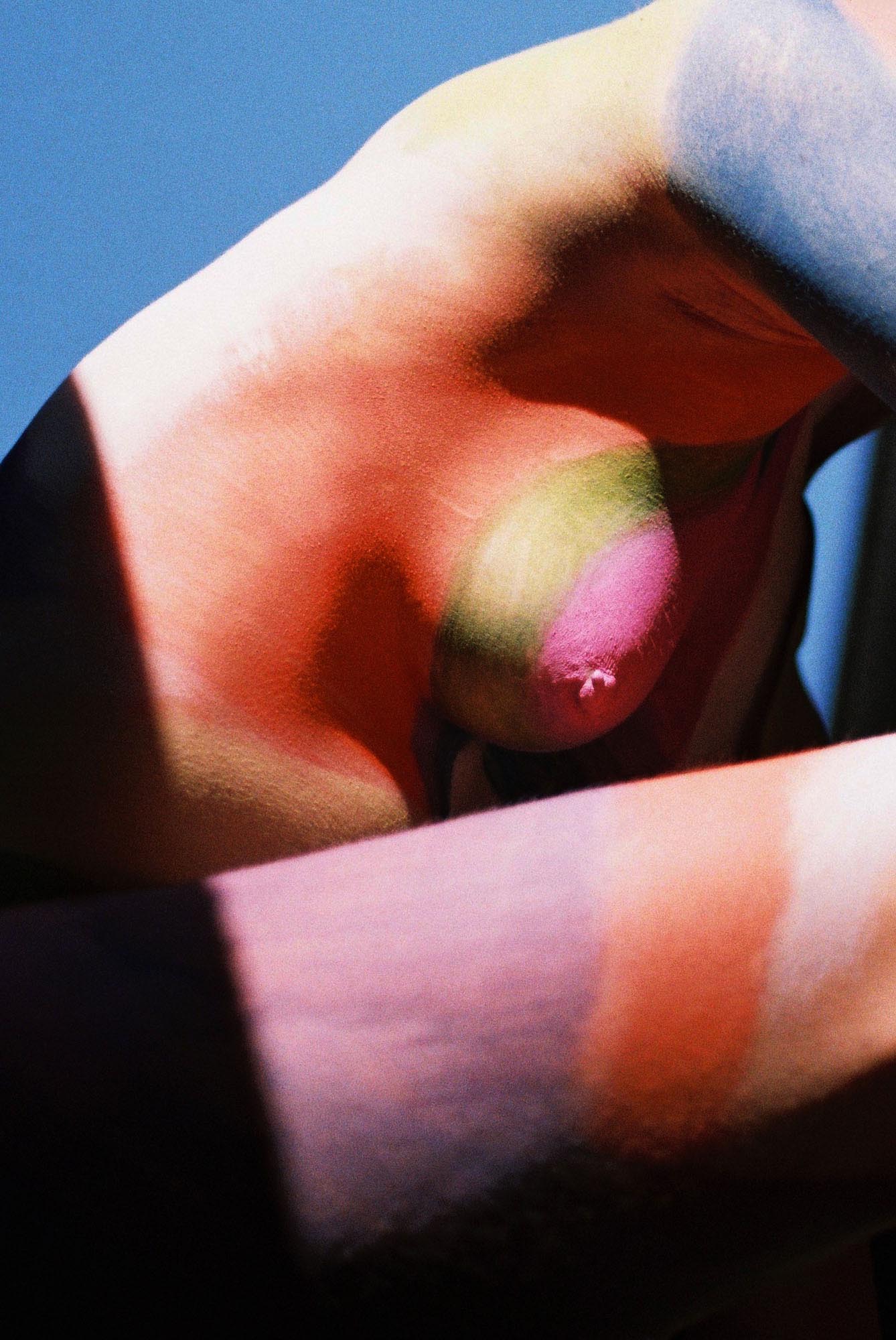
In this sense, the liberation associated with bared flesh results from the same oppression that is levied against it. Think of the ceremonial bra-binning of the 1960s;
or trailblazing artist Carolee Schneeman taking space as both artist and subject in her groundbreaking nude self-portraits;
or the international #freethenipple movement, which sees parades of topless women taking to the streets in a bid to end gendered censorship on major social media sites.
However, female nudity can be as exploitative as it was once emancipating when women lack full control over their nakedness.
After all, our bodies have long been pillars of capitalism and the female nude is inevitably tied to its commercialisation.
(But can this really be avoided in a world where every aspect of modern life
is imbued with the principles of free market economics?).
With the pervasiveness of the male gaze muddying the space between empowerment and sexualised objectification, the relationship of the female form to freedom and power is as entangled and unclear as ever 6.
Women will likely be somewhat confused if they try to follow all the rules.
To appear simultaneously sexy but modest, impish but pure, outstanding yet not overtly confident, is no easy feat.
And, although being called a prude and a slut in the same breath will never cease to be perplexing, it’s a reminder that there is no way of ‘winning’ as a woman within a patriarchal system.
and the female nude is inevitably tied to its commercialisation.
(But can this really be avoided in a world where every aspect of modern life
is imbued with the principles of free market economics?).
With the pervasiveness of the male gaze muddying the space between empowerment and sexualised objectification, the relationship of the female form to freedom and power is as entangled and unclear as ever 6.
Women will likely be somewhat confused if they try to follow all the rules.
To appear simultaneously sexy but modest, impish but pure, outstanding yet not overtly confident, is no easy feat.
And, although being called a prude and a slut in the same breath will never cease to be perplexing, it’s a reminder that there is no way of ‘winning’ as a woman within a patriarchal system.
INDECENT EXPOSURE
Now to the question on everyone’s lips. Could sunbathing topless or skinnydipping in a lake end with you staring at fully-clothed police officers through a set of cold steel bars? It’s highly unlikely. Under both the Public Order Act 1986 and the Sexual Offences Act 2003, a person is only guilty of an offence by being naked if they are acting in a disorderly manner and intend to cause alarm or distress. Going about your business naked in public may be considered ‘disorderly’ given that it does not conform to ‘normal’ standards of society. Think tanning topless at the park on a hot summer’s day versus streaking through the city centre on a Saturday afternoon. The primary concern of the Crown Prosecution Service is to strike a balance between the individual’s right to freedom of expression and the right of the wider public to be protected from alarm, distress and harassment. The takeaway is that unless it can be proved beyond a reasonable doubt that you stripped off with the intention to shock or distress passersby then you’re in the clear 7.
NAKED TRUTH
Modesty over your corporeal self will always be illogical because it does not serve you. Underestimating the power and abilities of your physical being will only ever benefit those trying to control you. And, although awareness of the oppressive, capitalist and patriarchal structures vying greedily for your flesh might seem insidious, this realisation can be freeing. These social, political and economic institutions rely almost entirely on your own self-discipline to succeed in their tyranny. Simply becoming aware of these systems is enough to begin the work of dismantling them.
Your body is the most politically controversial thing about you. Use it. Know your power. I’m not suggesting that you should burn every last item of clothing in a barrel and start attending your Zoom meetings or daily commute in the buff. Nor is it the case that nudity is the only form of protest against the entities claiming control over our bodies. It’s your body. You have the right to present it however you please. Consider why it is that you wear the clothes that you do and whether you glean your freedom and power from showing or covering your body (or both, we love a versatile queen). Whatever the choices, make them conscious and deliberate, doing away with decisions based on the fear that you and your body are not enough. Because you are enough. You always have been.
On board but not sure how to go about it? Start small. Change in gyms and swimming pool locker rooms if you didn’t before. Be naked with yourself, or among close friends. Bathe together. Admire, complement and paint each other on a Friday night over a glass of wine. Or bare all on a midnight swim in the sea. Congratulate yourself on how excellently your body carries you, fulfilling its purpose of connecting your being with the surrounding world. We all want to be seen and understood completely; a desire to express the infinite facets that make up our existence is what makes us human. Our bodies are a fundamental aspect of life on this plane; the urge to be without the armour of clothing we are habitually encumbered with is natural and healthy. There’s nothing more liberating than becoming aware of the potential of our own bodies. Through it you exist, make life and explore the world; it is part of You, your soul and essence. Your body is the vessel through which you love, make life and connect with others. This immense strength is as beautiful as any designer garment you could find to clothe it.
Nudity is not just for "old hippies". It can make you happier. And after all this time locked away in pandemic-induced quarantines, the idea of running off into the sunset in an unprecedented state of undress is – for many of us – more enticing than ever before.
It is not only a legitimate fashion and lifestyle choice, but a valid and direct form of protest against the endemic consumption embedded in the fashion industry.
Nothing is more cost-effective than an absence of products. No matter how many cars you have or how much council tax you pay, our bodies are all as equal as they are unique.
What better way to free ourselves from the control that capitalism lords over us with its endless barrage of body-altering products, than realising that we are born whole and complete, that we are enough?
Self-love and acceptance is your birthright. It’s time to claim it.
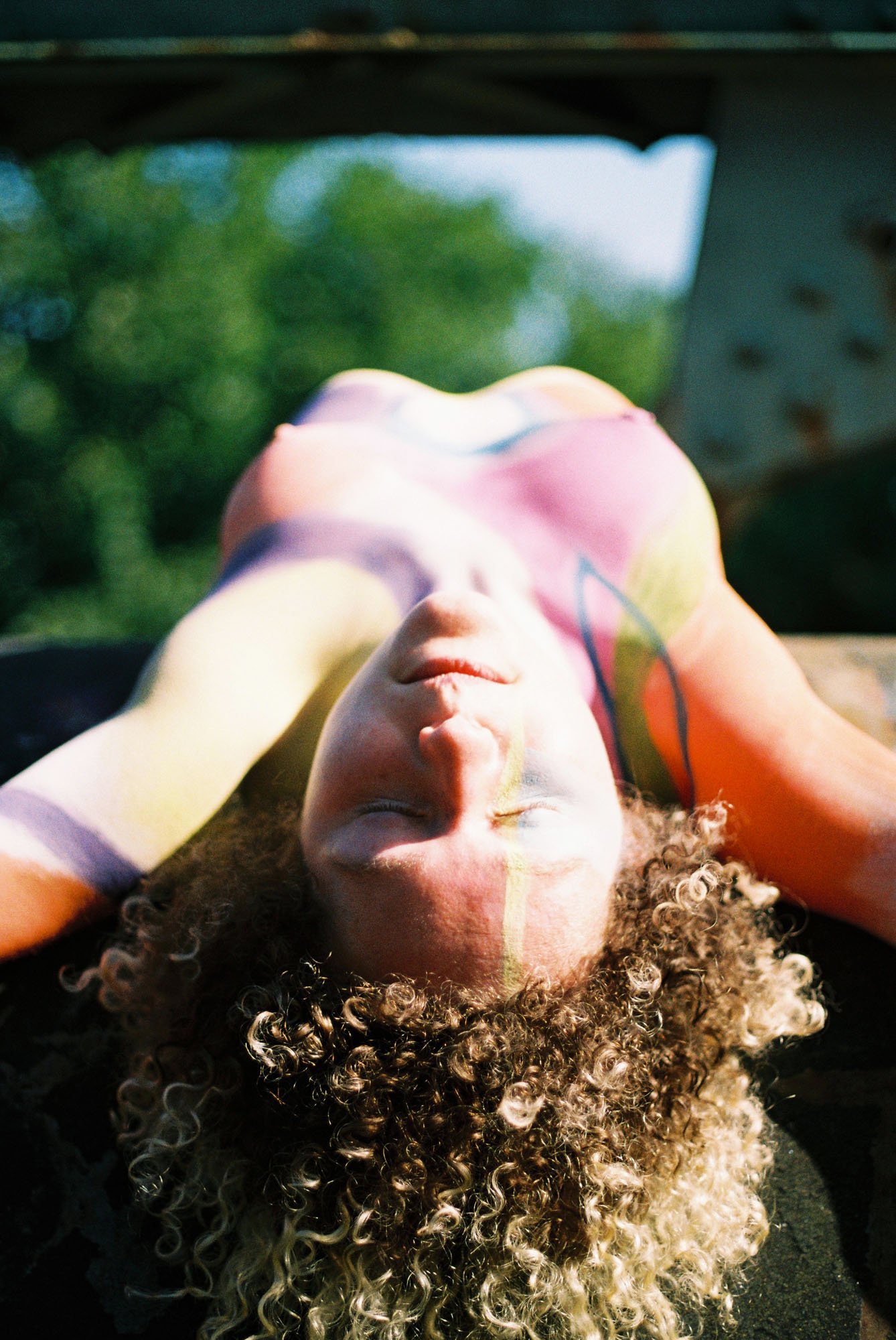
CREDITS
Concept & Writing – Alice Swift
Photography – Zoë Thabile
Editing & Body Painting – Maisie Lee
* * *
1. T Fuchs, The Phenomenology of Shame, Guilt & the Body, Journal of Phenomenological Psychology 33(2):223-243 (2002)↩
2. R Krieken, The Organisation of the Soul: Elias and Foucault on Discipline and the Self, Archives Europeneés de Sociociologie (1990) 31(2), 353-371.↩
3. L Casler, Sociopsychological Observations in a Nudist Camp: a Preliminary Study, Journal of Social Psychology (1964), 64, 307-323.↩
4. The word ‘woman’ in this article includes every person who identifies as such in their gender, expression and/or experience.↩
5. S Deora, Women Through History: Subjugation, Emancipation and Social Movements (ed. By N Sadanand) (2014) https://qrius.com/social-feminist-movements. ↩
6. S Bari, The Female Nude Is Powerful, But Not Necessarily Empowering (2016) https://aeon.co/ideas/female-nudity-is-powerful-but-not-necessarily-empowering. ↩
7. CPS Legal Guidance, Nudity in Public - Guidelines on Handling Cases of Naturism (September 2019)↩

